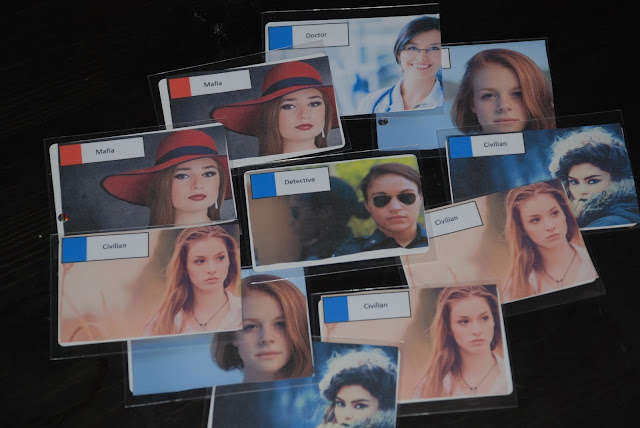The Game Mechanic - Hidden Roles

Hidden roles add a layer of social deduction to a board game. Players must try to analyse other people's decisions to surmise their secret role. Do you have the same objective as everyone else? Are you a traitor and do people suspect you? Should you make a decision against your objective to cover your tracks? The rules of the game should allow players to deceive one another, to form alliances based on trust and to do other events typical of social competitions. "Three may keep a secret, if two of them are dead." - Benjamin Franklin Mafia Mafia is a party game created in 1986. It has one group of players secretly be the Mafia and another be innocent civilians. Every night the Mafia take out an innocent civilian. During the day, the civilians must deduce which are hidden Mafia members. This is social deduction at it's simplest. Players begin wild unsupported accusations from the very beginning. Players are keenly watching others for reactions or...






